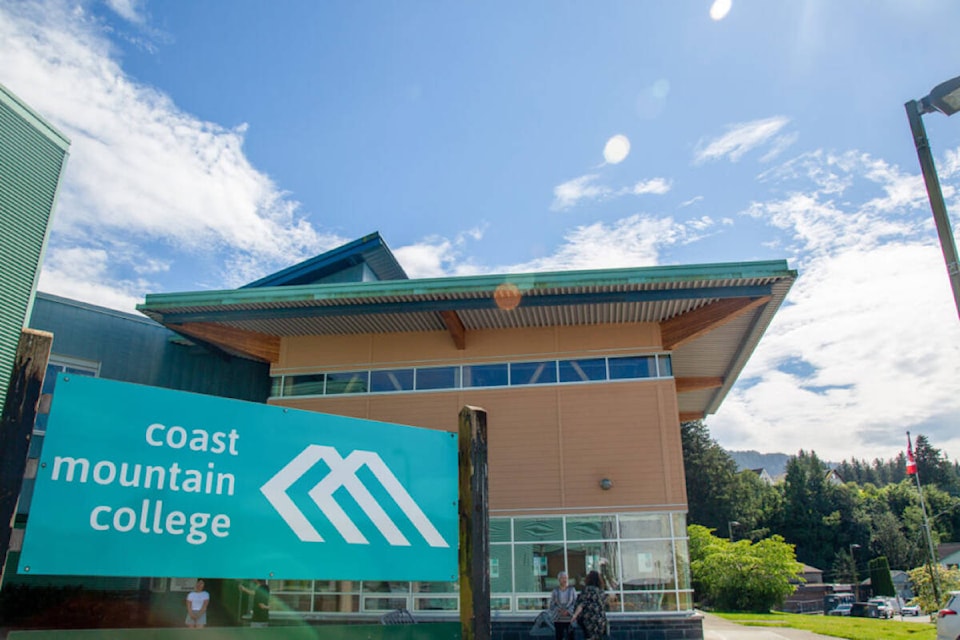Education
Coast Mountain College Faces Challenges from Declining Enrolment

Coast Mountain College (CMTN) is grappling with a significant decline in international student enrolment, largely due to recent changes by Immigration Refugees and Citizenship Canada (IRCC). As a result, Prince Rupert, which relies heavily on foreign workers, is experiencing the repercussions of this shift. On September 5, 2023, CMTN reported that international registrations have dropped to below 10 percent of 2023 figures, severely impacting the college’s ability to balance its operating budget.
The decline in enrolment means that revenue from international students, which previously supplemented the operating budget, is no longer available. CMTN staff across all campuses, including those in Prince Rupert, will likely be affected by these changes. Prince Rupert’s Mayor, Herb Pond, expressed his concerns, noting that pursuing international students had been a strategic decision made during his tenure as board chair at CMTN. He highlighted that this approach was meant to enhance course offerings for local students rather than serve as a financial strategy.
“Pursuing international students was a strategy developed when I chaired the board of governors at Coast Mountain College,” Pond stated. “It wasn’t a money grab, but rather a tactic to build out a broader offering of courses for the sake of local students.” He expressed hope that the new restrictions on foreign students would not significantly hinder the college’s ability to provide a diverse curriculum for students in Prince Rupert.
While the college has not yet made cuts to classes or programs, it is moving towards restructuring in light of the declining enrolment. CMTN President and CEO Laurie Waye acknowledged the necessity of making difficult decisions. “This will require some difficult but necessary decisions to refocus college operations so that CMTN is running a balanced budget without international student tuition revenue,” Waye stated.
In an effort to manage its finances, CMTN has already introduced expense reductions for the upcoming year, including reducing management positions by 17 percent, limiting travel and overtime, and leaving vacant positions unfilled. The college aims to save $4 million, but Waye indicated that achieving this target without further staff reductions may be unfeasible.
As part of its restructuring plan, CMTN is considering selling two properties in Kitimat and Houston, which had previously been leased. Recent provincial changes now allow the college to sell these assets, providing funds for future capital projects aimed at benefiting students throughout northwest British Columbia. “We are committed to offering quality education in these communities as we have been doing for more than a decade,” Waye added, noting that the college will continue to deliver programs by renting spaces or utilizing mobile training units when necessary.
The impact of declining international enrolment is also felt beyond the college. Local businesses in Prince Rupert depend on foreign workers to maintain their operations. During a city council meeting on March 24, 2023, business leaders and representatives from organizations such as Tourism Prince Rupert and the Chamber of Commerce raised concerns about the negative effects of stricter immigration policies on their workforce.
Many businesses struggle to recruit local residents or convince Canadians from other regions to relocate to the north. This has resulted in a heavy reliance on international students and temporary foreign workers. For instance, as of March 28, 2025, McDonald’s reported that 50 of its 80 employees were on temporary visas. Similarly, Safeway employed 50 percent of its 78 staff from foreign workers, while Save On Foods had 35 percent and Tim Hortons employed 30 percent of its workforce from this demographic.
The reliance on temporary foreign workers extends to local businesses like Skeena Taxi, where approximately 60 percent of drivers hold temporary permits, and Chances Casino, which employs 55 percent foreign workers. The Crest Hotel also has 35 percent of its staff made up of temporary foreign workers, highlighting a trend that may jeopardize the labor market in the region.
As Coast Mountain College navigates these challenges, the focus will remain on adapting to the new reality of limited international enrolment while striving to maintain educational quality and relevance for local students.
-

 Science2 months ago
Science2 months agoToyoake City Proposes Daily Two-Hour Smartphone Use Limit
-

 Health2 months ago
Health2 months agoB.C. Review Reveals Urgent Need for Rare-Disease Drug Reforms
-

 Top Stories2 months ago
Top Stories2 months agoPedestrian Fatally Injured in Esquimalt Collision on August 14
-

 Technology2 months ago
Technology2 months agoDark Adventure Game “Bye Sweet Carole” Set for October Release
-

 World2 months ago
World2 months agoJimmy Lai’s Defense Challenges Charges Under National Security Law
-

 Technology2 months ago
Technology2 months agoKonami Revives Iconic Metal Gear Solid Delta Ahead of Release
-

 Technology2 months ago
Technology2 months agoSnapmaker U1 Color 3D Printer Redefines Speed and Sustainability
-

 Technology2 months ago
Technology2 months agoAION Folding Knife: Redefining EDC Design with Premium Materials
-

 Technology2 months ago
Technology2 months agoSolve Today’s Wordle Challenge: Hints and Answer for August 19
-

 Business2 months ago
Business2 months agoGordon Murray Automotive Unveils S1 LM and Le Mans GTR at Monterey
-

 Lifestyle2 months ago
Lifestyle2 months agoVictoria’s Pop-Up Shop Shines Light on B.C.’s Wolf Cull
-

 Technology2 months ago
Technology2 months agoApple Expands Self-Service Repair Program to Canada









